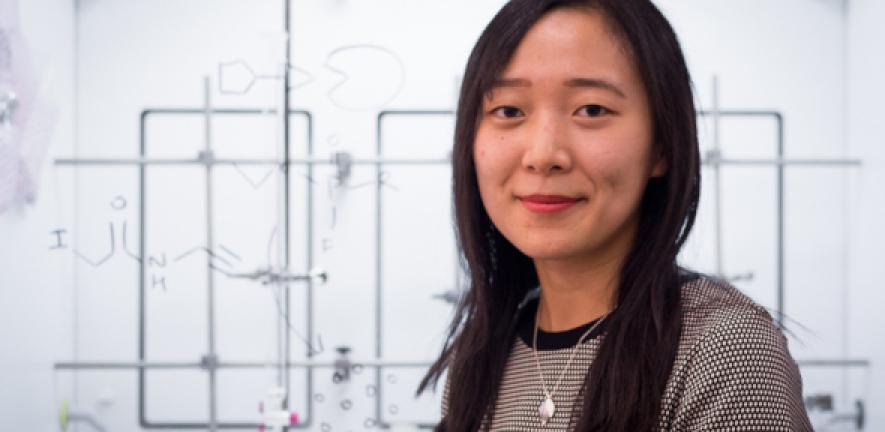
In both in vitro cell experiments and in vivo animal models, the researchers found that Piperlongumine (PL), a small molecule isolated from the long pepper Piper Longum L., acted as a potent anti-viral against the SARS-CoV-2 virus, which causes COVID-19.
Targeting the host, not the unwanted guest
Currently approved drugs against SARS-CoV-2 target the virus directly. The problem with this approach is that the treatments may become less effective when the virus mutates. But instead of targeting the unwanted ‘guest’, the researchers used PL to target the host cells. This potential treatment is more resistant to viral variants because host cells do not tend to mutate.
Dr Cong Tang is first author of the research, which has been published in ACS Central Science. She and her fellow researchers began looking for an anti-viral drug that targets the host cells rather than the virus itself, to avoid the issue of new variants.
Tang, who holds a Marie Curie fellowship in the Bernardes group, and is based at the Institute of Molecular Medicine in Lisbon, said: “The virus is adapting itself through mutation, which is why we have been fighting the pandemic for so long. We were looking for a new approach.”
PL attacks the virus by targeting GSTP1, which is overexpressed in the infected host cells. This then produces reactive oxygen species -- unstable molecules also known as free radicals – which react with other molecules in the infected cell, leading through a series of reactions to degradation and death of the virus. Because PL affects the host cells and not the virus itself, it is more resistant to naturally occurring viral variants. “Indeed, our data show that PL is equally effective against Alpha, Delta and Omicron variants, making it an ideal pan-variant antiviral,” said Tang.
No needles
As an added benefit, the experimental drug was administered via the nasal passage during the trials, thereby eliminating the need for needles. “Intranasal administration not only reduces the dangers of intravenous injections and need for professional healthcare, but is also believed to display a superior advantage because it can induce both mucosal and systemic immune response,” said Tang.
Future plans
“Because the molecule does not target the virus directly, but instead affects the level of reactive oxygen species, it has the potential to become a pan-SARS-CoV-2 therapeutic. It also paves the way for testing this natural product against other respiratory viruses around the world, such as influenza and Monkeypox,” said Gonçalo Bernardes, a Professor of Chemical Biology here who led the research. “We hope to use this study as a basis for moving forward to practical applications in anti-viral strategies.”
In previous research, PL derived from long pepper has also been shown to have anti-cancer properties. Long pepper is commonly found in India and is used as a spice in some Indian, North American, Indonesian and Malaysian foods. It is also used in some traditional Ayurveda treatments.
The animal studies used in the research were conducted within the relevant EU and national legislation in Portugal, and approved by the Portuguese official veterinary department for welfare licensing.
Research
C. Tang, A.R. Coelho, M. Rebelo, H. Kiely-Collins, T. Carvalho & G. J. L. Bernardes, A Selective SARS-CoV-2 Host-Directed Antiviral Targeting Stress Response to Reactive Oxygen Species, ACS Cent. Sci. (13 January 2023).

